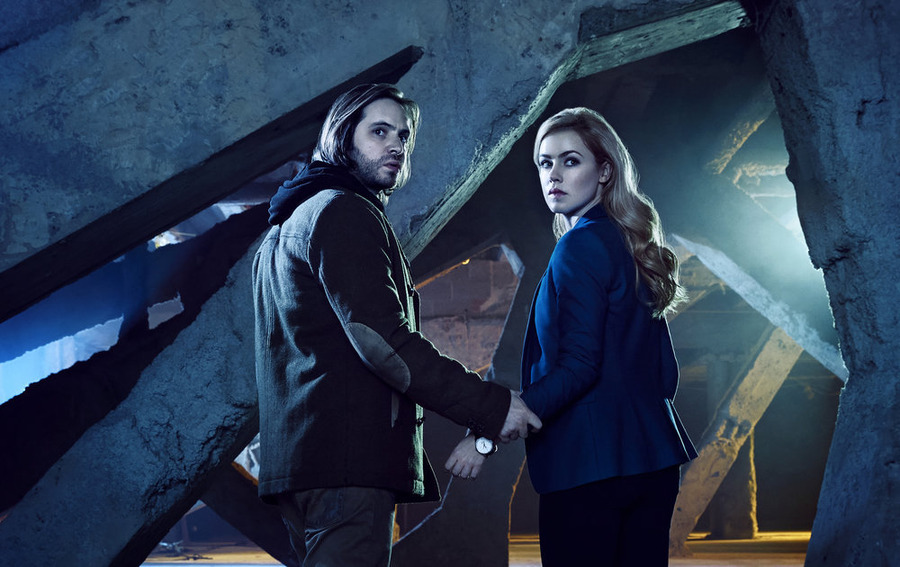(Warning: contains major spoilers)
“Time travel and emotion-they go hand in hand” (Terry Matalas, Inside 12 Monkeys S 1, Ep 12)
From the very beginning of the story of “12 Monkeys,” when we first learn about the civilization-killing plague, the apocalypse has served as a sort of green screen against which characters’ experiences, ethics and emotions are projected in shades both intense and subdued.
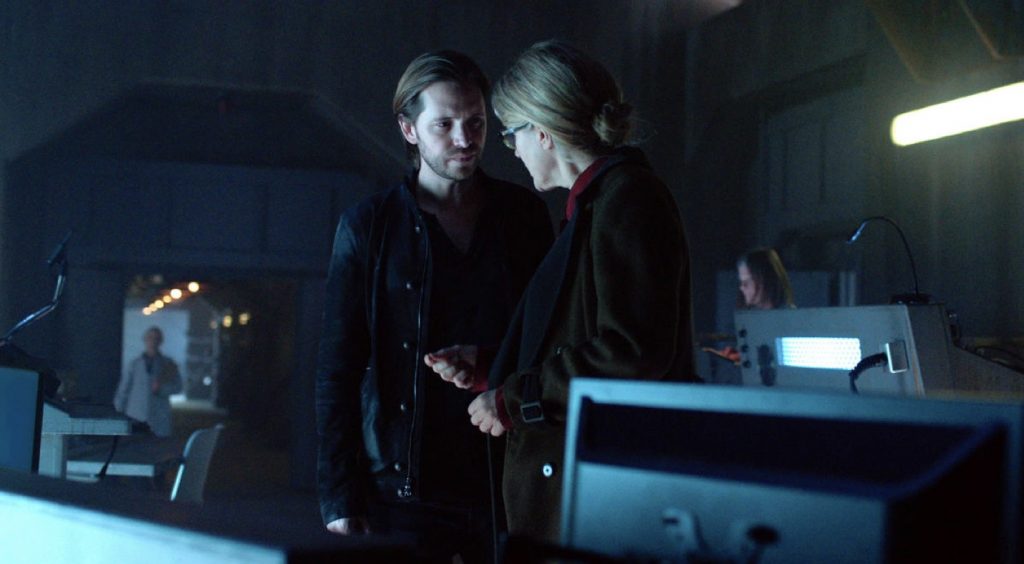
And once the scope of the apocalypse changes and the plague becomes a red storm shredding Life, the Universe and Everything, Time itself is revealed as a conscious and intentional entity and time travel an increasingly indispensable mechanism for birthing relationships and situations otherwise impossible. But time travel is perilous at best: a force potentially less a tool and more, as Katerina Jones states, like another apocalypse. Attempting to use such to reset reality and restore what was loved and lost as Project Splinter does, requires not only a measure of a blind faith but also a stupid sort of bravery.
Yet in a world where death outstrips life at every turn, choosing to love is in itself an act of courage.
Yet in a world where death outstrips life at every turn, choosing to love is in itself an act of courage. Share on XWe see this every time our heroes try to “save” someone, only to find they must first prepay in the currency of sacrifice. But Time – and the needs of theme and plot – also offers up plenty of twists and turns, loopholes and last-minute miracles which help out the good guys (and which could feel more contrived or hokey if viewers weren’t already rooting hard for the characters they care about).
Whether sublime or sorrowful, “12 Monkeys” stirs the elements of heartbreak and horror, pathos and joy together into a heady brew. Like Todd Stashwick (Deacon) states in a Paley Live interview from June of 2016: “It’s a love story. It is mothers and daughters, brothers, friends and lovers. That’s what is at stake. It’s not about saving just bodies, it’s about saving human lives and relationships.”
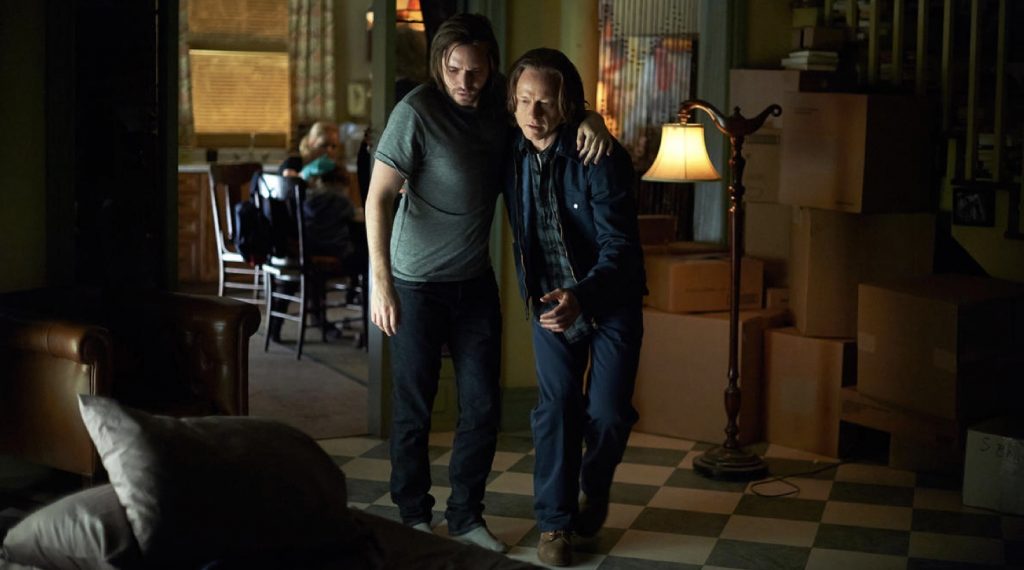
Relationship-based time travel drama is nothing new – it’s has been a pop culture staple beginning at least with Dr Who’s tours of the space-time continuum in the 1960s, and has experienced many incarnations since. But seldom have the stakes resonated with such emotional intensity as they have on “12 Monkeys.” Apocalypses can be epic, but also impersonal. However keeping the focus human-scaled amid the mythology and mayhem is what makes sacrifices purposeful and not mere plot points.
Season 1 James Cole, weighing the value of six billion human souls against the loss of one– himself- declares, “That math works for me.” But after months of splinters and struggle, bleeding and bonding, for Cole – arguably also for viewers – a single person likewise becomes the embodiment of all humanity – Cassandra Railly. By the middle of Season 2 when he finally admits to her “The only world I ever cared about if the one with you in it,” we know that both his mission and his worldview have changed.
And in this time travel tale, whenever the paradigm shifts, irony results – it is practically one of the Horseman of the “12 Monkeys” apocalypse. So Cole eventually reaches a point where his mission becomes giving up his life to save the one person who has made him feel his life may be worth living. Wise counsel is shown to often come out of the mouths of “fools” like manic savant Jennifer Goines. And characters longing for intimacy transform denying themselves even the dubious satisfaction of admitting their feelings into an act of love, like some futuristic version of “The Gift of the Magi.”
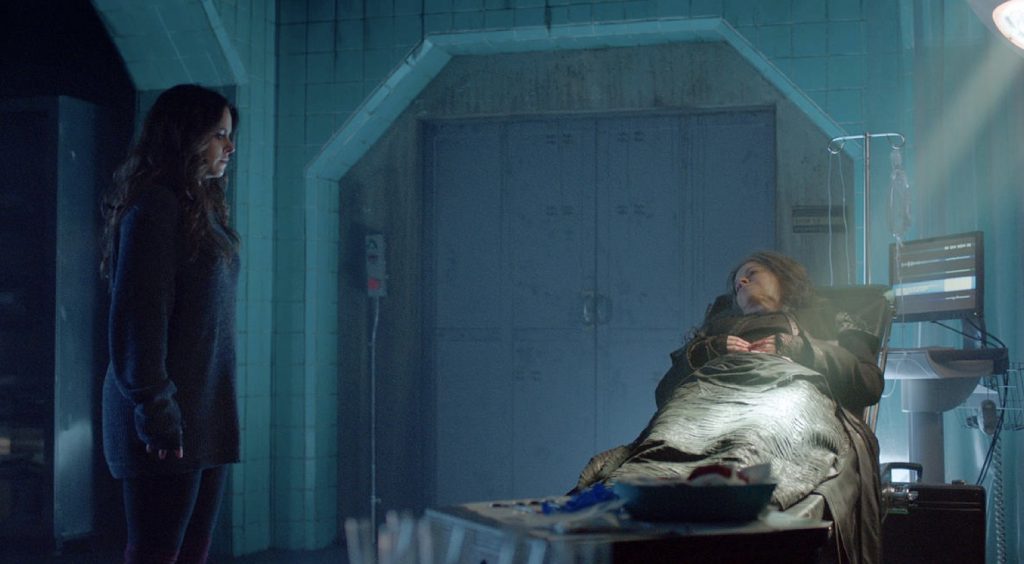
If irony is the first Horseman of the “12 Monkeys” apocalypse, angst is the second.
If irony is the first Horseman of the 12 Monkeys apocalypse, angst is the second. Share on XIt’s no accident, for example, that several key characters are orphans. Cole, Ramse, Cassie and Jennifer each lose at least one parent to death or abandonment in childhood, with Cole’s history of a murdered father and a mother he never knew perhaps the most extreme. These early losses nurture strengths and sensitivities, but also create emotional triggers impacting later life choices (not to mention inspiring some the most dramatic time bendy scenes ever). A poignant example is an adult dying Cole’s bittersweet reunion with the father he hasn’t seen in decades within earshot of his 6-year-old self. Another is Old Jennifer’s memorable deathbed “moment alone” of sharing affection and wisdom with her younger incarnation.
And Time’s tools can deliver comfort and even joy as well as heartache. In “Resurrection,” a vulnerable young Jennifer, drawn to and exploited by maternal figures like Olivia, realizes she won’t achieve emotional solace by being a “daughter.” It takes splintering forward and acquiring her own Daughters for her to find security and purpose as their matriarch. Similarly, in “Lullabye,” the time travel tech (and its potential dangers) Jones attempts to erase by arranging for her past self to be assassinated becomes the very mechanism which saves her daughter and heals the deepest wounds of her heart.
And then there is the time bonded connection between Cole and Cassie. In the story they may struggle to define their partnership, but viewers soon perceive they are each other’s soul mate – two halves of an impossible pairing that would never have existed save Time allowed it and time travel made it possible.
How often in a story are the first encounters between a hero and his future love this exotic: as a young boy meeting her as beautiful Dr Railly visiting his home, as an adult scavenger stumbling upon her skeletal remains, and during his first mission when he’s forced to kidnap, interrogate and traumatize her? Yet these elements work better than an aphrodisiac to draw Cole and Cassie together, despite repeated attempts each make to let the other go.
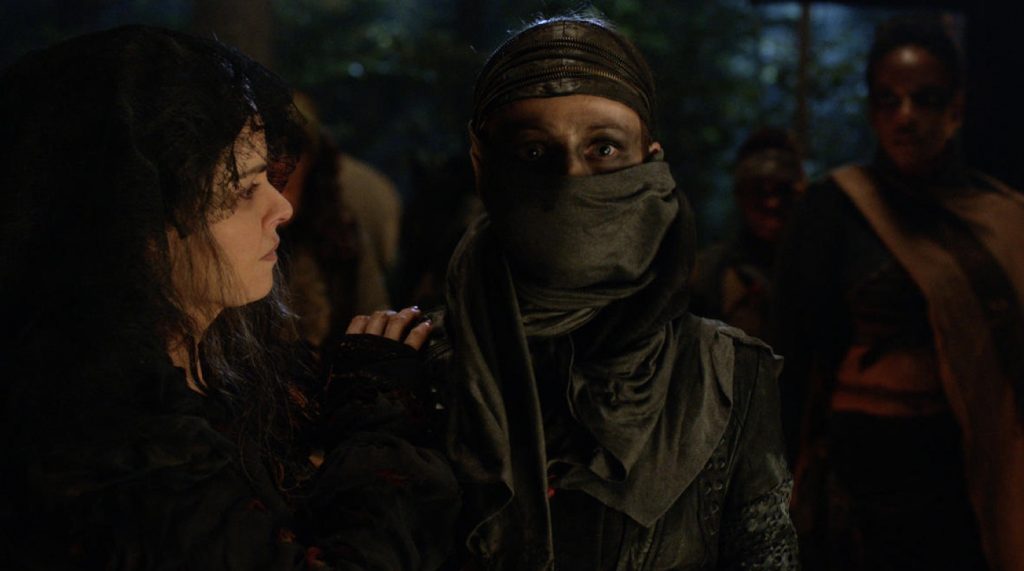
Cassie tearfully watches Cole splinter away to Chechnya hunting the plague virus though she believes it will mean his death; she also leaves him behind in 2016 on the pretext he has “abandoned the mission.” Cole sends a wounded Cassie forward to 2043 even though he can’t follow; later he walks sadly away from her, unconscious in hospital, hoping that by doing so he might free her to regain a life of peace and safety.
Perhaps because they may only have been test moves in the game of Fate, but these sacrifices, painful as they were in the moment, seem to impact the timeline very little. Instead, it is the instinctive, trusting connection between Cole and Cassie which appears fundamental rather than random. This is hinted at from the moment Cole’s mesmerized gaze lingers on Cassie’s photo as he is about to splinter for the first time, Katarina Jones’s voice sternly intoning “She is not your mission. She is only a puzzle piece.” Katarina is half right. Cole and Cassie are two puzzle pieces, complimenting and completing one another, like mirrors reflecting and reinforcing the reality created between them.
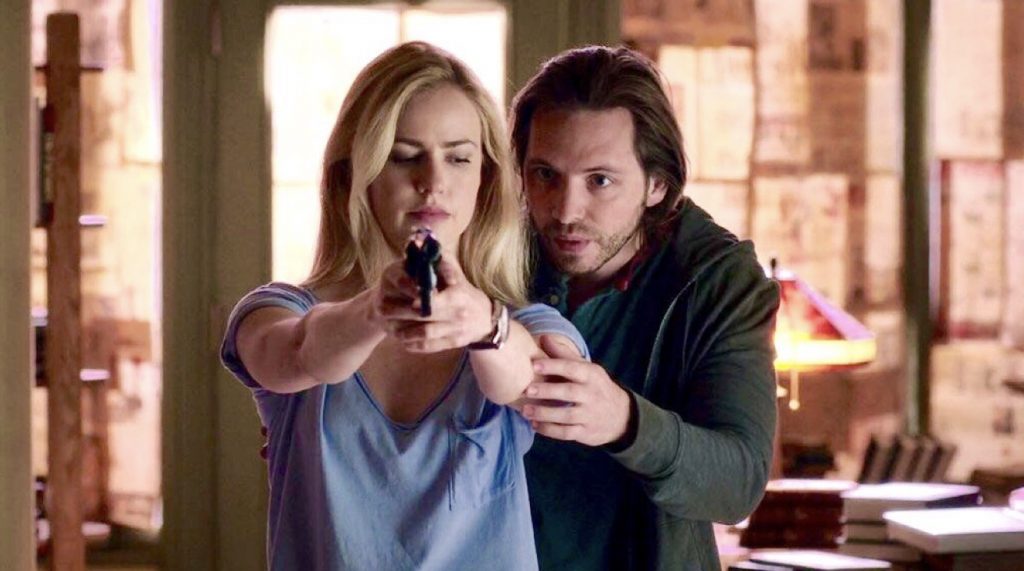
The Cole who first embarks on his mission is a half savage assassin, the Cassie he encounters a pacifist healer. But these identities start to evolve almost immediately. Cole is soon training Cassie to use a pistol, and Cassie’s moral conscience and refinement exert a civilizing power on Cole. This duality survives even after their roles shift in Season 2, when a gentler, emotionally restrained Cole struggles to be partnered with a fiercer, more ruthless Cassie and their previous emotional comfort seems lost.
Where are you right now? Somewhere warm, safe, next to someone you love?”
A clue about how important a concept is in “12 Monkeys” lies in how often it is repeated. These lines, suggesting lovers separated by a distance (whether emotional, chronological or geographical is unclear) have appeared three times so far in the series: in the voiceovers which open and close the first season and in a monologue by Cassie during a sequence in “Blood Washed Away.” Similarly, Otis Redding’s “These Arms of Mine,” a soulful plaint about the heartache of love, is heard several times, playing behind the “Where are you now” narrative of the first episode, at midpoint during the first season and again in the finale. These verses, musical and spoken, set the tone for relationships unfolding under a shadow of loss – an unavoidable consequence of human connection during a time of apocalypse.
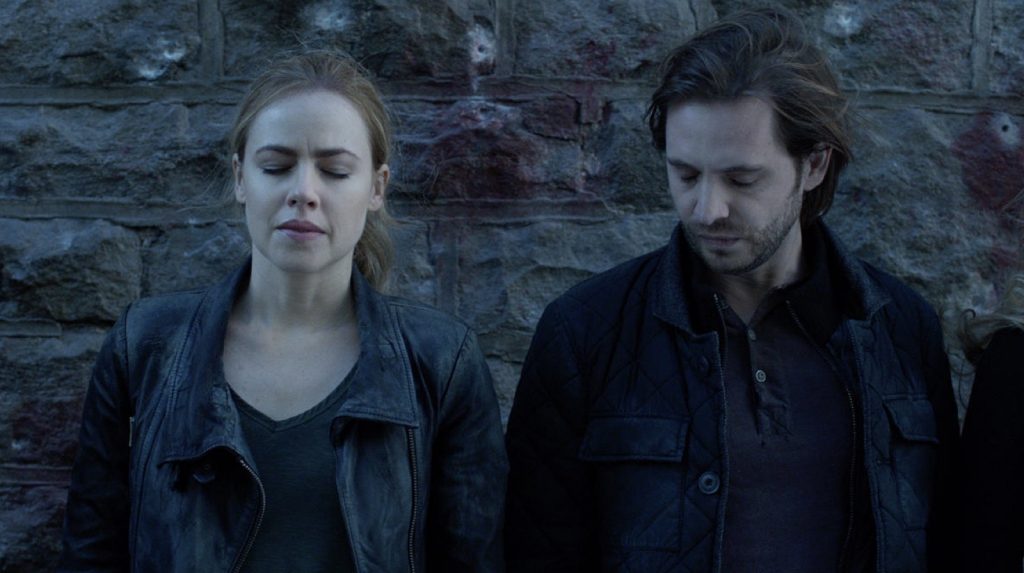
Both the word and concept of loss are to be found everywhere within this story. In scenes of intimacy and separation, love and loss are like pairs in a slow dance, or beginning and end points of time loops characters seem able to start, yet never fully complete. Cassie’s rejection of Cole is an example: “You and I both know we’re going to lose so much before this is all over” she whispers sorrowfully before slipping her hand out of his and turning away. Later Cole, stung by Cassie’s admission that she’s always known he was in love with her angrily responds, “And you kept pushing me away, so that in the end you wouldn’t have anything to lose. And now you don’t.”
But in“12 Monkeys,” every love story is a threesome, with Time as the third party.
But in 12 Monkeys, every love story is a threesome, with Time as the third party. Share on XSometimes an interloper and sometimes an ally, Time always “takes what it is owed.” It is a debt pending from a bill collector, a sword hanging over the heads of characters who, despite ample foreshadowing, never know precisely when the day of reckoning will come. And angst and irony are ever present in the mix. Sam disappears without warning into the time stream, lost to the father who spent years separated from him to ensure his safety. Cole finally gets the life of healing peaceful domesticity he’s always craved, but then is told, by an agent of Time no less, he must undo it all or watch his cherished loved ones perish.
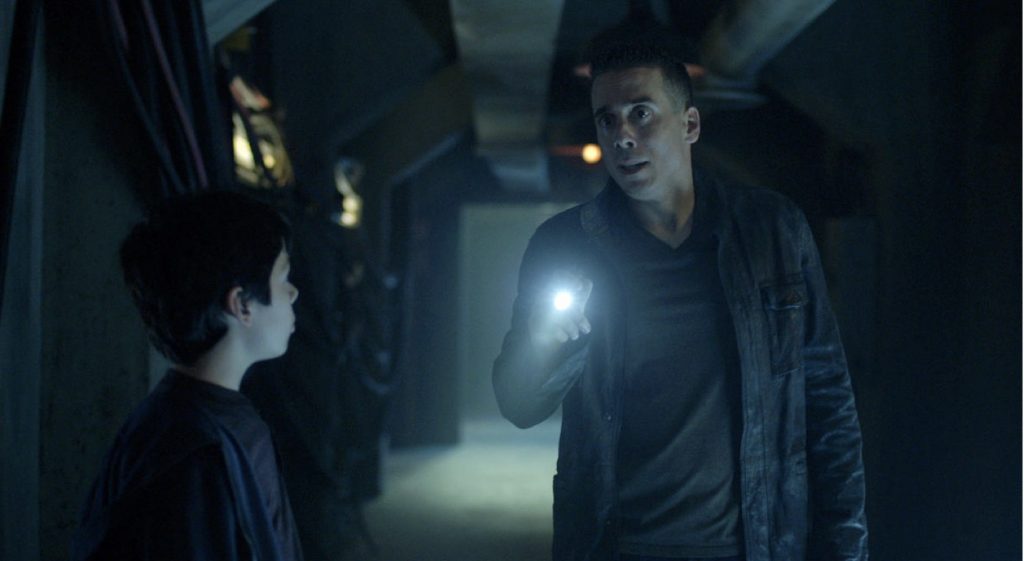
But though the apocalypse is cruel, Time can be merciful. Ramse’s son may have been separated from him, but survives and a reunion between the two seems imminent in Season 3. Cole reluctantly swallows the red tea, sacrificing hearth and home to remake a dying world, but the woman he shared both with retains the memory of their love even though that reality has been erased.
As to how all this relates to The Witness? To the question of whether a permanent reset of reality is possible or even desirable? From a post Season 2 vantage point these remain open questions, elements of a pattern still working itself out. “12 Monkeys” has surprised us before and no doubt will do so again. Hopefully, for fans of happy endings, much of what’s been lost will be found or remade, love will endure and triumph, and Time will prove to have been on the side of our heroes all along.
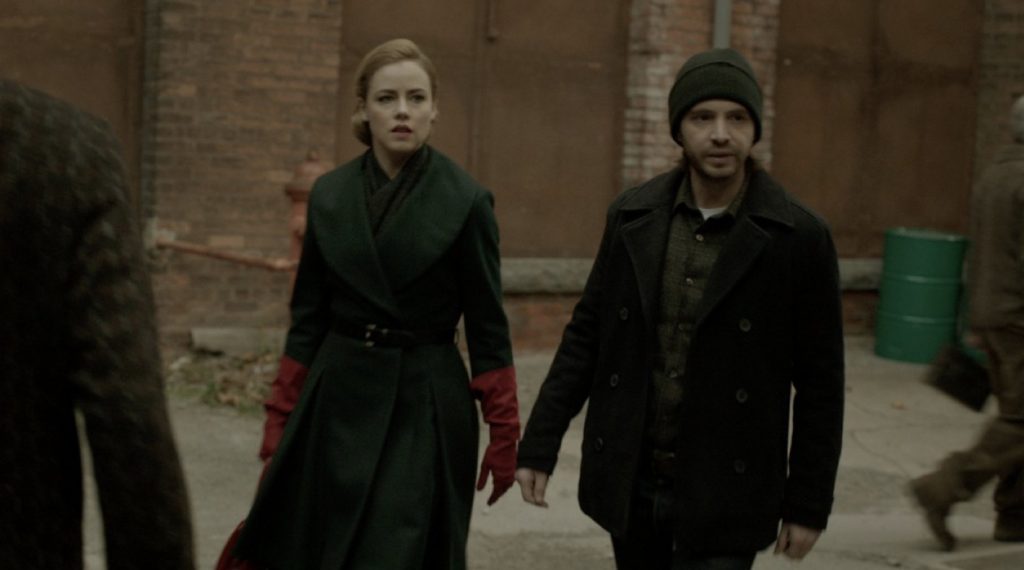
If you haven’t seen 12 Monkeys or if you want to relive the series so far after reading this story, you can watch it on Amazon here.

